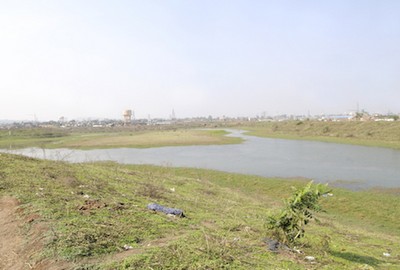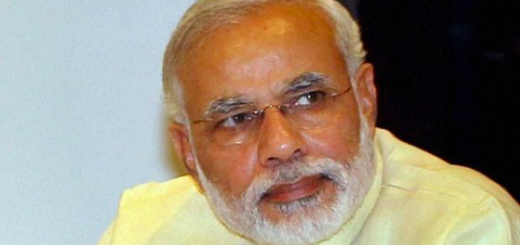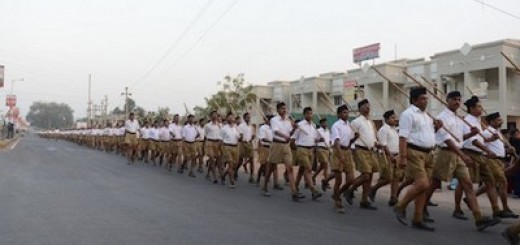Church joins chorus of calls for Bhopal tragedy study

In the pic: The dumping ground of the Union Carbide gas plant where the company dumped chemical waste after the 1984 disaster, with the plant seen in the distance in Bhopal, India. (arindambanerjee / Shutterstock.com)
Thirty years later, residents suffer effects from water, soil contamination.
Bhopal: (UCAN) A church official has joined activists to demand a comprehensive study to assess the impact of the Bhopal gas tragedy, where residents continue to suffer some 31 years after the disaster struck this central Indian city.
"It is unfortunate that we have not been able to find a solution to various health hazards the survivors of the Bhopal gas disaster suffer from even after three decades," said Archbishop Leo Cornelio of Bhopal on the eve of the 31st anniversary of world's worst industrial disaster.
An estimated 5,300 people were eventually killed and more than 500,000 injured when some 40 tons of poisonous mythyl isocyanate leaked from the Union Carbide plant on the outskirts of Bhopal, the capital of Madhya Pradesh state on Dec. 2, 1984.
Over the past three decades, according to activists about 25,000 more have died from exposure to the toxic gas and other chemical contamination of soil, ground water and the environment.
"The survivors continue to suffer from diseases, physical and mental inabilities, but no one is really aware of the exact cause of these sufferings," Archbishop Cornelio said.
"It is not the survivors alone but a third generation also suffers from mental and physical ailments," he said.
Growing call for study
Five nongovernmental organizations working among the survivors in January this year, approached the federal government to allow the United Nations Environmental Program to conduct a comprehensive scientific assessment on the tragedy's impact, said activist Satinath Sarangi.
Sarangi, a senior member of the Bhopal Group for Information and Action, told ucanews.com that the federal government rejected requests to conduct a comprehensive scientific assessment.
He said the United Nations agreed to do the study, provided it got the approval from the federal government.
Sarangi said the government has rejected a more comprehensive study out of fears of hindering potential foreign investment
"My child can neither stand, speak, or do anything," Kauser Jahan, said of her son, Umer Ahammed, 3.
She takes her child every day to the Chingari Trust, which provides medical care and rehabilitation for children born to gas-affected parents.
Jahan believes water contaminated by the disaster is responsible for her son's disability. Her other two children were born healthy.
Various piecemeal studies conducted by government and nongovernmental agencies since 1990 showed that toxic chemicals, pesticides and heavy metals are present in high concentrations up to 3.5 kilometers from the now-defunct factory and at depths greater than 30 meters.
According to the latest report by the Indian Institute of Toxicology Research in Lucknow, groundwater in 22 communities located around the Union Carbide factory is contaminated by hazardous waste.
On Dec. 1, a voluntary agency — the Sambhavna Trust Clinic — said 2,500 children were born with congenital malformations.
The study covered some 100,000 people from 20,000 families, including the parents of those directly exposed to the gas tragedy, according to Ritesh Pal, who coordinated the study.
The toxic issue
The activists say the problem of toxic contamination of soil and groundwater in and around the Union Carbide factory in Bhopal is at least 33 years old.
"The situation is too alarming but the government does not want to do anything to help the gas-affected people and their future generations," said another activist Balkrishna Namdev.
Namdev said more than 25,000 metric tons of toxic waste was dumped in 13 hectares of open ground surrounding the factory, with another 350 metric tons of toxic wastes inside the factory site itself.
The government so far claimed to have successfully disposed of only 10 metric tons in the 32 years since the tragedy.
Archbishop Cornelio said "unless we conduct a scientific study, there will be no way to understand the gravity of the spread of toxic and chemical waste and their impact on the survivors and their future generations."
"Since no one knows the real picture of the impact of the gas tragedy and who really are the affected, many deserving will never benefit from compensation," he said.
Source: UCAN
















